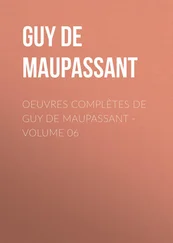Daniel suddenly called and beckoned her. “Hey, Mom, was Grandma’s first name Martha?”
Vera hurried over to where he stood. Where he stood was not before a little iron cross but a five-foot-high slab of white marble, blazing ferociously white in the sun. It was something to which the word monument could fairly be applied, at least in Connaught. Twelve months ago it had provided Alec Monkman with a topic for proud discussion with Mr. Stutz. “Now they’re making a special delivery from Regina in a covered truck, Stutz. I don’t understand the principle of that – a covered truck – it’s going to get rained on sooner or later, isn’t it? But the fellow who sold it to me was most specific on it being delivered in a covered truck, mentioned it more than once. The best. Real guaranteed Pennsylvania marble. I don’t know how they intend to unload it, weighing what it’s got to, but that’s up to them. They’re the experts. Just as long as they don’t chip or crack it.”
There it was, rearing up from the earth, wide as a double door, thick and deep as a bookcase. Sprays of lilies and woolly lambs were carved in relief. Chiselled into its bone-white face were the words,
Martha Serena Monkman
1895-1939
Loving Mother and Wife
The grass on the plot showed evidence of recent cutting and the weeds had been pulled. There was even a jar of flowers. It was true these were brown and dry but in such arid heat flowers would wither and curl in a day, mummify in a week. Vera reached down, picked up the jar, and shook the dead petals and stalks out at her feet. She handed the jar to Daniel. “Go get some more,” she said tersely. She didn’t look at him. Her eyes remained fixed on the grave and the block of marble.
“Some more flowers?”
“Yes. Some more flowers.”
He did as he was told, without arguing. There was something about her face. Going out the gate, he glanced back. His mother’s spine was slumped and her arms hanging loosely at her sides.
Daniel had no idea of where she expected him to find flowers on such a godforsaken, parched and barren hillside, but find them he did, clumps of orange-red blossoms emerging from hairy, grey-green leaves. As he stooped to gather them, grasshoppers came spitting up into his face from the short grass like grease from a hot skillet.
In a short time he had collected a fist-sized bouquet. Returning to present them to his mother he found she was still standing before her mother’s grave, looking for all the world as heavy as the tombstone itself.
“I have the flowers,” Daniel called out to her, holding them aloft as he approached.
Vera turned. There had been a change. It was in her face and bearing. She no longer slumped and dangled; she had bucked up her spine and worked herself into an anger. Daniel hoped it wasn’t him.
“I don’t know what these are,” he said apologetically.
“Scarlet mallow,” answered his mother softly. The softness didn’t deceive him. “Scarlet mallow and stone lilies. Put them in the jar. It’s time to go.”
He was kneeling, putting the flowers in the jar when she bolted down the hill without him. Maybe it was because of his slowness or clumsiness with the arrangement. He had to run like the very devil to catch up. She didn’t say a word to him all the long way back, but from the look of her, from the way she pounded that poor road, making the dust spurt with her feet, Daniel decided Sunday dinner would be pleasanter for all concerned if she had found what she had gone looking for, weeds and rust.

In 1939, Alec Monkman’s wife died. Her death was a watershed in his life; after it he became a success. Success was late in coming to him. Until he was fifty-two Monkman was just Connaught’s drayman, a bull-necked, slope-shouldered pair of overalls who shovelled coal and wrestled heavy freight, explaining himself with a wry smile and the old saying, “Strong back, weak mind.” His business worth consisted of a dilapidated truck used for summer delivery, a sleigh and team of Clydesdales which he drove in winter when the roads were bad.
Grief was responsible for his success, grief made him daring and reckless. Monkman had always kept a stern eye on the bank book, had always been a careful, saving man. But the death of his wife robbed money of its significance. So when Rudy Kollwitz’s arthritis made it difficult for Rudy to run a projector and impossible to splice a broken film, forcing him to put his shoebox of a movie theatre up for sale, Alec withdrew all his savings, negotiated a mortgage at the bank, and bought The Palladium cheap, taking all of Connaught by surprise.
His purchase of the movie house had nothing to do with its soundness as an investment, which nevertheless was considerable with a war going on and people hungry for newsreels, and hungrier still for entertainment to push the newsreels out of mind. No, he only believed that running a picture show would help fill the interminable spaces which his evenings, deprived of Martha, had become. The movie theatre would give him something to do, he told himself. It gave him too much to do. He grew pale and drawn with the strain of doing. By day he lifted and shifted ton upon ton of dead weight; by night he sat tense in a projecting booth high above the rows of heads communing with and adoring the bright images he cast into the darkness.
It was a family affair, The Palladium. Alec ran the projector and Vera sold admissions and popcorn. Earl, who couldn’t be trusted to do much because he was flighty and couldn’t keep his mind on things, sat in the foyer, kicking his heels on the rungs of a chair, watching the people troop in. Generally he slept through the second showing of the picture curled up in a seat in the back row of the theatre. Alec had tried to persuade Earl to stop at home but he wouldn’t. Ever since his mother died he was afraid to be by himself. He said alone in the house he heard things. When he was downstairs he heard his mother walking upstairs, and when he was upstairs he could hear her moving in the kitchen, opening and shutting the cupboard doors.
Monkman did not know what to make of this talk of ghosts, except that the boy wanted mothering. Mothering would put him right. The year Vera finished her Grade Ten he took her out of school to run the house and mother little Earl. After all, she had more schooling than he had ever seen and he knew of no earthly reason for her to venture further into the realms of geometry-trigonometry, Hamlet , or Latin.
For this his daughter never forgave him. She tried to persuade him to leave her in high school, to permit her to graduate. Vera assured him she could manage it, school, the house, Earl. He would not hear of it, would not yield. “It’s too much for a girl of sixteen,” he said, “to run a household and go to school. You’d end up ruining your health. I won’t have it, Vera. That’s all there is to it.”
To Vera it felt like a death sentence. She loved school. It was the one thing which lent her life a sense of movement. Turning back over the pages of a notebook in June she could say to herself, “Here is all I know now that I didn’t know before. This is how far I’ve come.” The notion that one thing built on another, that the second theorem of geometry was predicated on the first, and the third on the second, was a comfort to her. Vera was attracted to order and valued knowledge that could be measured – so many lines of “Lycidas” committed to memory, so many French verbs conjugated. French was Vera’s favourite subject. Walking home, striding into a blustery March wind on long, ungainly legs, she would imagine herself pacing the windswept deck of an ocean liner, speaking French to a dark man. “ Je ne sais quoi ,” she would say softly to herself, and then laugh a sophisticated laugh, rehearsing the future. But her stupid, stubborn father snatched that away. “Earl needs you,” he argued. “He’s just a little kid. He needs a mother.”
Читать дальше













